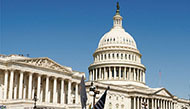Unfortunately, the evolving deals could well rekindle understandable suspicions in the Arab world about oil being America’s real reason for invading Iraq and fan even more distrust and resentment among Iraq’s competing religious and ethnic factions.
As reported by Andrew Kramer in The New York Times, Exxon Mobil, Shell, Total and BP - original partners in the Iraq Petroleum Company - are in the final stages of discussions that will let them formally re-enter Iraq’s oil market, which expelled them 36 years ago. The contracts also include Chevron.
We cannot blame Baghdad for wanting to get on with exploiting the country’s lucrative oil deposits, especially when Kurds in northern Iraq are rapidly signing contracts to develop oil fields in their own semiautonomous region. Still, the negotiating process pursued by Baghdad is flawed and troubling.
The contracts are being let without competitive bidding to companies that since the American invasion have been quietly advising Iraq’s oil ministry how to increase production. While the contracts are limited to refurbishing equipment and technical support and last only two years, they would give these companies an inside track on vastly more lucrative long-term deals.
Given that corruption is an acknowledged problem in Iraq’s government, the contracts would have more legitimacy if the bidding were open to all and the process more transparent. Iraqis must apply that standard when they let contracts for long-term oil field development.
Also troubling is that the deals were made even though Iraq’s parliament has failed to adopt oil and revenue sharing laws - critical political benchmarks set by the Bush administration. That is evidence of continued deep divisions in Iraq over whether oil should be controlled by central or regional government and how the profits should be distributed.
The United States and the oil companies must encourage Iraqi officials to make the political compromises needed to establish in law the rules for managing Iraq’s abundant natural resources with as much transparency as possible. Otherwise, oil will just become one more centripetal force pulling the country apart.
스마터리빙
more [ 건강]
[ 건강]이제 혈관 건강도 챙기자!
[현대해운]우리 눈에 보이지 않기 때문에 혈관 건강을 챙기는 것은 결코 쉽지 않은데요. 여러분은 혈관 건강을 유지하기 위해 어떤 노력을 하시나요?
 [ 건강]
[ 건강]내 몸이 건강해지는 과일궁합
 [ 라이프]
[ 라이프]벌레야 물럿거라! 천연 해충제 만들기
 [ 건강]
[ 건강]혈압 낮추는데 좋은 식품
[현대해운]혈관 건강은 주로 노화가 진행되면서 지켜야 할 문제라고 인식되어 왔습니다. 최근 생활 패턴과 식생활의 변화로 혈관의 노화 진행이 빨라지고
사람·사람들
more많이 본 기사
- “美, 평택기지 비행대대 비활성화”…주한미군 감축 관련성 주목
- ‘공천헌금·비위 의혹’ 일파만파에…鄭 “끊어내겠다”며 강경조치
- 미군에 쫓기는 베네수行 유조선 감싼 러시아… ‘추격 중단’ 요청
- “백악관의 인플루언서”…트럼프의 SNS전략 뒤엔 그녀가 있다
- 美스타트업서 가장 인기있는 창업자 학위는…석박사 아닌 ‘중퇴’
- 美 독감 유행 장기화 우려…H3N2 변이 확산 영향
- 스위스 스키휴양지 화재 사망 약 40명, 부상은 115명
- [사이테크+] “지상·우주 동시 관측으로 1만광년 밖 ‘나홀로 행성’ 발견”
- 李대통령, 오늘 靑 영빈관서 신년 인사회…국힘 지도부는 불참
- 뉴욕시장 취임 맘다니 “새 시대 시작…대담하게 시정 펼칠 것”
- 건강보험 보조금 종료, 최대 정치쟁점으로
- 몬트레이 한국학교, 소방서에 장난감 전달
- <이정훈기자의 음악산책>베토벤의 라스트 댄스
- ‘SNS 검증’ 美 비자심사 지연에 원격근무까지 시행하는 빅테크
- 재외동포, 2년 새 7만5천명 줄었다
- 트럼프, 자신 비판해온 배우 클루니 佛국적 취득에 “굿뉴스”
- 중부 캘리포니아 ‘한인 이민사’ 나왔다
- 식당 가면 4% 음식세 더 내야
- 병오년 2026년 시작을 알리는 꽃가루
- 美, 中 대만포위훈련에 “무력·강압통한 일방적 현상변경 반대”
- 보아 없는 SM, 상상 가능할까.. ‘25년 동행’ 거취에 쏠린 관심
- 멕시코, 미국서 수배한 마약 카르텔 우두머리급 체포
- 지방세 공제한도 1만→4만달러로 상향 1
- 머스크의 뉴럴링크, 새해부터 뇌-컴퓨터 연결장치 대량생산
- LA 올림픽, 도시 전체가 경기장… 한인타운 인근서도 경기
- 방탄소년단 뷔, 佛 베르사유 궁전에 ‘영원한 발자취’..헌정 벤치 영구 보존
- “추신수는 지울 수 없는 발자취 남겼다” 美 야구기자, 명예의 전당 투표서 ‘CHOO 선택’ 이유 밝혔다
- 한인 음악인들 ´희망의 선율´ 병오년 새해 밝힌다
- 남궁옥분 “故 송도순, 열흘 전부터 혼수상태..큰 별 졌다”
- <단체장 신년사> 임정택/주 SF 총영사
- <단체장 신년사> 오미자/SF 평통회장
- <단체장 신년사> 박희례/몬트레이 한인회장
- <단체장 신년사> 우동옥/실리콘밸리 한인회장
- <단체장 신년사> 김한일/SF 베이지역 한인회장
- <단체장 신년사> 정경애/오클랜드 이스트베이 한인회장
- <단체장 신년사> 이모나/새크라멘토 한인회장
- 평통 큰 기대속 2025년 마감...시애틀협의회 분과위원회 워크숍 통해 사업 및 활동방향 모색
- 스페이스X·오픈AI·앤스로픽, 역대 최대급 IPO 예고
- [새해 암호화폐 시장은 어디로- 현황과 전망] “낙폭 뒤의 기회” vs.“불확실성 당분간 지속될 것”
- 팔순앞둔 트럼프, 건강논란 거듭 일축 “검사받아 괜히 의혹키워”
- 트럼프 “워싱턴 개선문 건설, 두달내 시작…아주 훌륭할 것”
- “오픈AI, 말로 구동하는 AI기기 준비중…음성AI 고도화 매진”
- 신화 이민우, 두 딸과 함께.. “나를 찾아와준 보물들”
- 건강보험 보조금 종료…중간선거 낀 새해 최대 정치쟁점으로
- SF 상공회의소 차기회장에 그린장 SF한인회 부회장
- 코스트코행 40만달러 랍스터 도난당해...‘스푸핑, 위장트럭’까지…워싱턴주 등 미 화물절도 극성
- ‘메시보다는 손흥민과...’ 美 전역 SON에 푹 빠졌다! 무려 500명 대상 ‘가장 뛰고 싶은 팀’ LAFC 선정
- 불체자 의심 메디케이드 정보 공유 허용
- “AI·소비가 경제 ‘버팀목’… 금리인하로 주택시장 반등”
- 새해에도 성금 물결 이어져 ...이수잔ㆍS독자 1,000달러씩. 동덕여고 500달러
1/5지식톡

-
 미 육군 사관학교 West Poin…
0
미 육군 사관학교 West Poin…
0https://youtu.be/SxD8cEhNV6Q연락처:wpkapca@gmail.comJohn Choi: 714-716-6414West Point 합격증을 받으셨나요?미 육군사관학교 West Point 학부모 모…
-
 ☝️해외에서도 가능한 한국어 선생님…
0
☝️해외에서도 가능한 한국어 선생님…
0이 영상 하나면 충분합니다!♥️상담신청문의♥️☝️ 문의 폭주로 '선착순 상담'만 진행합니다.☎️ : 02-6213-9094✨카카오톡ID : @GOODEDU77 (@골뱅이 꼭 붙여주셔야합니다…
-
 테슬라 자동차 시트커버 장착
0
테슬라 자동차 시트커버 장착
0테슬라 시트커버, 사놓고 아직 못 씌우셨죠?장착이 생각보다 쉽지 않습니다.20년 경력 전문가에게 맡기세요 — 깔끔하고 딱 맞게 장착해드립니다!장착비용:앞좌석: $40뒷좌석: $60앞·뒷좌석 …
-
 식당용 부탄가스
0
식당용 부탄가스
0식당용 부탄가스 홀세일 합니다 로스앤젤레스 다운타운 픽업 가능 안녕 하세요?강아지 & 고양이 모든 애완동물 / 반려동물 식품 & 모든 애완동물/반려동물 관련 제품들 전문적으로 홀세일/취급하는 회사 입니다 100% …
-
 ACSL 국제 컴퓨터 과학 대회, …
0
ACSL 국제 컴퓨터 과학 대회, …
0웹사이트 : www.eduspot.co.kr 카카오톡 상담하기 : https://pf.kakao.com/_BEQWxb블로그 : https://blog.naver.com/eduspotmain안녕하세요, 에듀스팟입니다…
케이타운 1번가
오피니언
 정숙희 논설위원
정숙희 논설위원샴페인, 마지막 날과 첫날을 위하여
 조지 F·윌 워싱턴포스트 칼럼니스트
조지 F·윌 워싱턴포스트 칼럼니스트 [조지 F. 윌 칼럼] 저무는 2025년에 안도의 한숨
 김동찬 시민참여센터 대표
김동찬 시민참여센터 대표 [미국은 지금] 책임 있는 자본 없으면 커뮤니티 미래도 없다
 성영라 수필가 미주문협 부이사장
성영라 수필가 미주문협 부이사장 [수요 에세이] 다시, 제자리로 돌아와서
 신경립 / 서울경제 논설위원
신경립 / 서울경제 논설위원 [만화경] 경영자의 ‘문제적’ 사과
 문태기 OC지국장
문태기 OC지국장 한인 정치력 업그레이드 기대
 민경훈 논설위원
민경훈 논설위원세계 역사를 바꾼 동물
 박홍용 경제부 차장
박홍용 경제부 차장 한인사회가 주목해야 할 새해 경제
 박영실 시인·수필가
박영실 시인·수필가 [화요칼럼] 피드백
1/3지사별 뉴스

지방세 공제한도 1만→4만달러로 상향
2026년 새해에도 뉴욕과 뉴저지 한인들의 일상에 크고 작은 영향을 미치는 다양한 규정과 법규가 새롭게 바뀌게 된다. 당장 1일부터 뉴욕시 최…
■ 사고- 한동대·뉴욕한인청소년센터 국제여름캠프

식당 가면 4% 음식세 더 내야
2026년 1월1일부터 페어팩스 카운티 내 모든 음식점과 레스토랑에서 4%의 음식세(Food and Beverage Tax)가 새롭게 부과된다…
VA, 새해부터 스팸 전화·문자 강력 규제

병오년 2026년 시작을 알리는 꽃가루
지난달 12월 31일 뉴욕 타임스퀘어 에서 열린 볼 드롭 행사에서 찬란한 볼이 새해를 알린 직후 2026년 1월 1일 0시를 기해 이날 메인 …
중부 캘리포니아 ‘한인 이민사’ 나왔다

오늘 하루 이 창 열지 않음 닫기 




















































.png)


댓글 안에 당신의 성숙함도 담아 주세요.
'오늘의 한마디'는 기사에 대하여 자신의 생각을 말하고 남의 생각을 들으며 서로 다양한 의견을 나누는 공간입니다. 그러나 간혹 불건전한 내용을 올리시는 분들이 계셔서 건전한 인터넷문화 정착을 위해 아래와 같은 운영원칙을 적용합니다.
자체 모니터링을 통해 아래에 해당하는 내용이 포함된 댓글이 발견되면 예고없이 삭제 조치를 하겠습니다.
불건전한 댓글을 올리거나, 이름에 비속어 및 상대방의 불쾌감을 주는 단어를 사용, 유명인 또는 특정 일반인을 사칭하는 경우 이용에 대한 차단 제재를 받을 수 있습니다. 차단될 경우, 일주일간 댓글을 달수 없게 됩니다.
명예훼손, 개인정보 유출, 욕설 등 법률에 위반되는 댓글은 관계 법령에 의거 민형사상 처벌을 받을 수 있으니 이용에 주의를 부탁드립니다.
Close
x